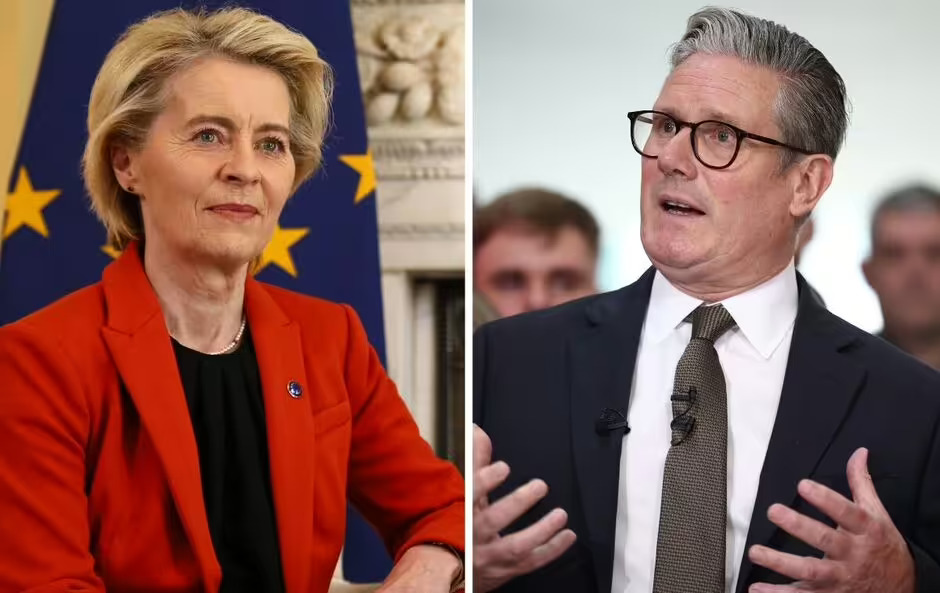The European Union has refused to let the UK access vital migrant fingerprint databases, dealing a major blow to Prime Minister Keir Starmer’s Brexit reset efforts. This decision by Brussels is seen as a setback for the UK government’s push to crack down on illegal migration and improve border security.
According to sources in Whitehall, EU officials told UK negotiators that Britain cannot be granted access to the Schengen Information System (SIS) or Eurodac. These systems hold critical data, including the fingerprints of migrants intercepted while trying to enter the EU without permission. Before Brexit, the UK had limited access to SIS but lost that right after leaving the EU.
This refusal comes at a time when the number of migrants crossing the English Channel has already passed 11,000 this year. The UK government had hoped access to the SIS and Eurodac would be a “gamechanger,” allowing immigration caseworkers to quickly identify people with previously rejected asylum claims and speed up deportations.
Starmer had previously said that greater data sharing on cross-border crime and people smuggling was essential. “The more we can share, the better,” he stated last November. However, the EU insists that allowing access would set a precedent, and third-party countries like the UK cannot be allowed into these sensitive databases.
One UK source told The Times that this was deeply frustrating. “We see this as mutually beneficial, but there has been no progress. The EU is being very strict on this issue,” they said. Another insider accused the EU of being “intransigent” and said the UK was only asking for a reasonable workaround to enable cooperation.
Brexit talks between the UK and EU are ongoing this week, with a major summit planned for May 19. Starmer’s government is also aiming to reach new agreements on defence cooperation, food trade rules, and energy supply between Britain and the EU.
Meanwhile, the EU is pushing for more flexible visa rules for young people to travel and work between the UK and the bloc, as well as continued access to British waters for EU fishing vessels.
A government spokesperson said: “We are not providing a running commentary on our discussions with the EU. These talks cover a wide range of important areas. We will always act in the national interest to get the best outcomes for the UK.”
Despite the setback, negotiations continue as both sides work towards rebuilding relations after Brexit. However, the EU’s refusal to share key migrant data has made tackling illegal migration even more difficult for the UK, raising fresh questions about post-Brexit cooperation on border control.

